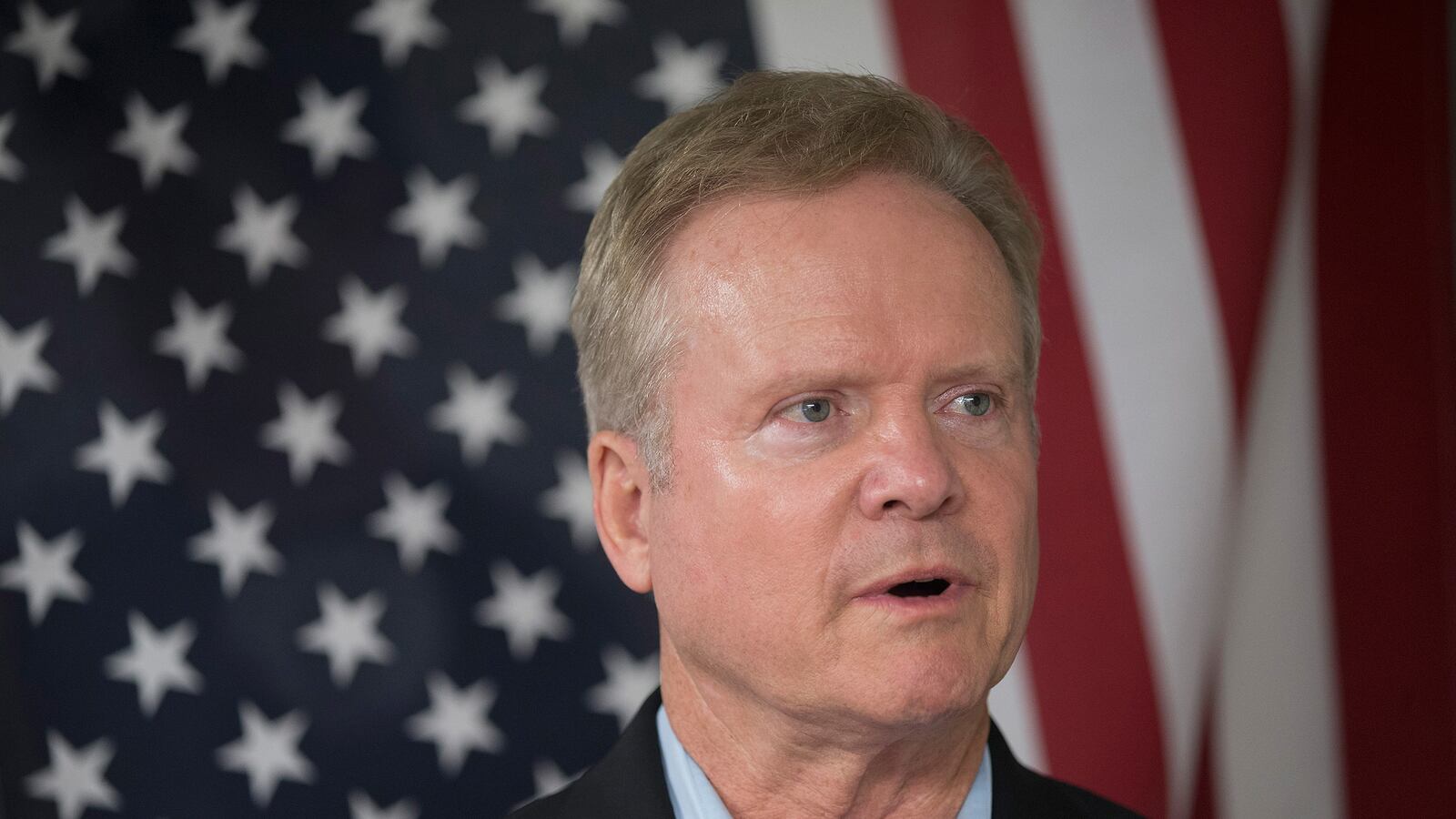Jim Webb just may be the most unusual, compelling presidential candidate around: He’s a much-decorated Vietnam combat veteran whose heroics make Hollywood war heroes pale by comparison. In an era of ghost-written Tweets, he’s an acclaimed novelist, screenwriter, and journalist. He was Ronald Reagan’s Secretary of the Navy whose early, prescient opposition to the Iraq War brought him back to the Democratic Party—where his views on guns, the environment, Southern culture, and affirmative action are not exactly in synch with his party’s base.
But there’s a far more fundamental sense in which Webb stands in startling contrast to the root assumptions of Democrats about an issue that divided (and then shaped) his party for almost half a century: the Vietnam War. What Webb believes about that war, and specifically about those who opposed it, still makes him an apostate, if not a heretic, in the party whose presidential nomination he now seeks.
With the exception of race, no question split the Democratic Party more than Vietnam. In 1968, it helped drive the incumbent Democrat to abandon a re-election fight, and left the convention a shambles. By 1972, anti-war activists had rewritten the nominating rules and got one of their own, George McGovern, as the nominee. This led the more hawkish elements of the party (including organized labor) to withhold support, and, over time, turned neo-conservative Democrats into Republicans.
Jimmy Carter unconditionally pardoned all Vietnam draft evaders and resisters on his first day in office. And the fight at home over the war served as the incubator for the next generation of Democratic leaders. Bill Clinton’s youthful experiences as a protester and with the draft were significant campaign issues. John Kerry came to prominence as a combat veteran who denounced the war at a Senate hearing; those denunciations, in turn, triggered the “Swift Boat” ads that wounded him politically in 2004. For the last several decades, the consensus view among Democrats is that the Vietnam War was a mistake, and that the protests and liberal congressional opposition helped bring an end to a tragedy.
Jim Webb believes none of that. He has consistently argued that the Vietnam War was, as Ronald Reagan once put it, a “noble cause”—that South Vietnam was resisting aggression from the North—and that the picture of a nationalist, indigenous movement of North Vietnamese is a significant distortion. He believes that, for all of the strategic errors imposed (mostly) by a clueless civilian leadership, the war could have been brought to a very different conclusion. (See, for example, his 2003 article “Why We Fought & Why We Would Do it Again” in the American Legion Magazine.)
Webb believes that after 1973, South Vietnam’s efforts to defend itself were undermined by congressional Democrats and their political allies who were content to let the North conquer Saigon—and that those same forces refused to acknowledge the brutal consequences of that defeat.
But most striking is Webb’s view of the anti-war movement—and the members of what he once called the “boomer elite” who formed its leaders and foot soldiers. His view of these people doesn’t border on contempt; it crosses that border enthusiastically.
“It is difficult to explain to my children that in my teens and early twenties the most frequently heard voices of my peers were trying to destroy the foundations of American society, so that it might be rebuilt according to their own narcissistic notions,” he wrote in 1997, in an article for the conservative American Enterprise Institute.
“In retrospect it’s hard even for some of us who went through those times to understand how highly educated people—most of them spawned from the comforts of the upper-middle class—could have seriously advanced the destructive ideas that were in the air during the late ’60s and early ’70s. Even Congress was influenced by the virus.”
In that same article, he concludes: “And what of these elites who misread not only a war but also their own countrymen? Where are they now, other than in the White House?”
Keep in mind the White House occupant he’s knocking there is, of course, President Clinton.
His view of these boomer elites hasn’t changed much in more recent years. His comments about the Confederate flag have been, to put it mildly, out of step with the rest of his party. And in Born Fighting, his history of America’s Scotch-Irish population published in 2004, Webb talks about “redneck” culture this way:
“The culture so dramatically symbolized by the Southern redneck [is] the greatest inhibitor of the plans of the activist Left and the cultural Marxists for a new kind of society altogether. And for the last fifty years the Left has been doing everything in its power to sue them, legislate against their interests, mock them in the media, isolate them as idiosyncratic, and publicly humiliate their traditions in order to make them, at best, irrelevant to America’s future growth.”
Webb goes on to describe “rednecks” as an “obstacle to the collectivist taming of America, symbolized by the edicts of political correctness.”
Now it’s true that there are other signs that show a softening of some of Webb’s earlier “lines in the sand” view of those who opposed the war. For 20 years, he refused to shake hands with John Kerry, arguing that he “deserved condemnation” for charging that Americans had committed war crimes in Vietnam. But in 2004, he endorsed Kerry for president.
When outgoing President Clinton was assailed for his midnight pardons in 2001, Webb wrote: “It is a pleasurable experience to watch Bill Clinton finally being judged, even by his own party, for the ethical fraudulence that has characterized his entire political career.” But Webb was onstage when Clinton campaigned for him in the closing days of the 2006 Senate race.
But for Webb’s basic set of beliefs? As late as April 30, on the 40th anniversary of the fall of Saigon, he said that a “very liberal, anti-war Congress” cut off funding to the South Vietnamese shortly before Saigon fell to the Vietcong. “If our political leaders had done a better job with their duty, we may have seen a different situation in Vietnam,” he said.
Is this an echo of what Barack Obama once called “dorm room arguments of the sixties”? In some sense, yes. President Obama now greets the head of the Vietnamese Communist Party at the White House; the U.S. and Vietnam have been trading partners for the better part of 20 years. And Webb’s 2002 warnings about Iraq are in marked contrast to Hillary Clinton’s vote for that war (and her assertions at the time that there may have been a link between Saddam Hussein’s Iraq and al Qaeda).
Still, it’s intriguing that a candidate for his party’s nomination believes so passionately in a set of ideas so at odds with the prevailing beliefs of the party he wants to lead.





